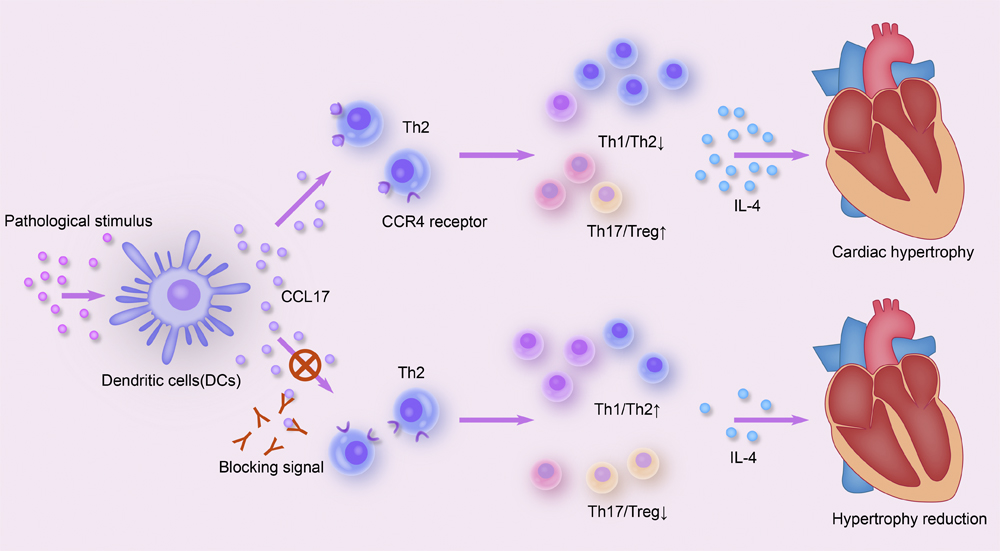Pathological cardiac remodeling characterized by left ventricular hypertrophy, myocardial fibrosis, and inflammation is a determinant of the clinical course of heart failure (HF). Aging and activation of the renin-angiotensin system play important roles in pathological cardiac remodeling. Antiaging treatments, such as calorie restriction and the use of renin-angiotensin system inhibitors, may improve heart failure by reducing cardiac inflammation.
Evidence is mounting for the potential benefit of inflammation inhibition in reducing cardiovascular disease. For example, Canakinumab, a therapeutic human monoclonal antibody against IL-1β, has been shown to significantly reduce the incidence of major adverse cardiovascular events. However, the effectiveness of anti-inflammatory therapy in heart failure remains to be fully elucidated.
Recently, researchers from the Chinese Academy of Medical Sciences and Peking Union Medical College published an article entitled “CCL17 acts as a novel therapeutic target in pathological cardiac hypertrophy and heart failure” in the journal J. Exp. Med. The results of this study showed that the chemokine CCL17 is considered a novel target for the treatment of age-related and angiotensin II-induced pathological cardiac hypertrophy and heart failure.
Circulating proteomic signatures of AGEs are strongly associated with aging and age-related diseases; however, the role of changes in secreted proteins in identifying therapeutic targets for disease is unclear. Serum proteomic studies in age-stratified healthy people and further community-based cohorts as well as heart failure patients showed that circulating C-C motif chemokine ligand 17 (CCL17) levels increased with age and associated with cardiac dysfunction.
Subsequent animal experiments further showed that Ccl17-KO significantly inhibited aging and angiotensin II (Ang II)-induced cardiac hypertrophy and fibrosis, accompanied by plasticity and differentiation of T cell subsets. Furthermore, therapeutic application of an anti-CCL17 neutralizing antibody inhibited angiotensin-converting enzyme II-induced pathological cardiac remodeling.
In conclusion, population-based studies and experiments based on age-related and angiotensin II-induced pathological cardiac hypertrophy disease models collectively reveal the damaging effects of CCL17 on cardiac tissue. Elevated serum CCL17 levels were associated with worsening cardiac function, suggesting that CCL17 may be a new biomarker for heart failure. Furthermore, administration of CCL17 blockade may be a novel anti-inflammatory strategy for the treatment of heart failure.









